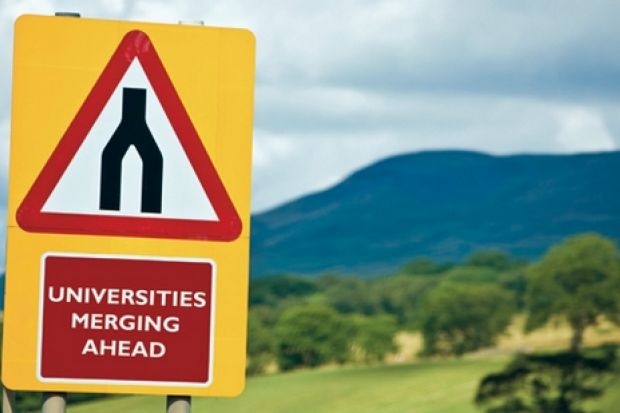The University of Wales has insisted that it is still alive and kicking despite announcing that it is dropping its charter and will no longer offer degrees.
The embattled institution announced last week that it would instead adopt the 1822 charter of Trinity Saint David, with which it is merging.
This means that the merged institution will no longer award University of Wales degrees to local students or to affiliated colleges with validated courses.
The two institutions are also merging with Swansea Metropolitan University.
However, the University of Wales will still exist in name, as the merged institution will be called University of Wales: Trinity Saint David.
In a statement, vice-chancellor Medwin Hughes says that the university will be "transformed" and that it is committed "to a new beginning".
A source close to the University of Wales said it would be "evolving".
"In terms of it shutting up shop, nothing could be further from the truth. Our responsibilities to our students remain. Students on University of Wales courses across the world will be looked after," the source said.
The 70,000 or so students pursuing University of Wales degrees globally have been assured that their courses will continue, but no new applicants will be accepted.
However, Peter Noyes, vice-chancellor of the University of Wales, Newport, spoke about the "inevitable end to the story of the University of Wales".
"It is welcome that the sector can finally begin to move on from this painful period in our history towards a stronger future for our students and stakeholders," Dr Noyes said.
In its statement, the University of Wales also says it will "secure an ongoing commitment" to assets including the University of Wales Press, the Dictionary of the Welsh Language project and the Centre for Advanced Welsh and Celtic Studies.
The announcement about the charter, which coincided with the decision by D. Hugh Thomas to step down as chair of the University of Wales' council, follows allegations of a visa scam at Rayat London College, which had courses validated by the institution.
But Professor Hughes said the decision was made in response to an independent report in March, which advised that the University of Wales should merge with another institution in the country.
Earlier this month, the University of Wales announced that it would revamp its course-validation system, which accredits programmes at about 130 colleges across the world, so that only those "designed and fully controlled" by the institution would be approved.
Register to continue
Why register?
- Registration is free and only takes a moment
- Once registered, you can read 3 articles a month
- Sign up for our newsletter
Subscribe
Or subscribe for unlimited access to:
- Unlimited access to news, views, insights & reviews
- Digital editions
- Digital access to THE’s university and college rankings analysis
Already registered or a current subscriber? Login
